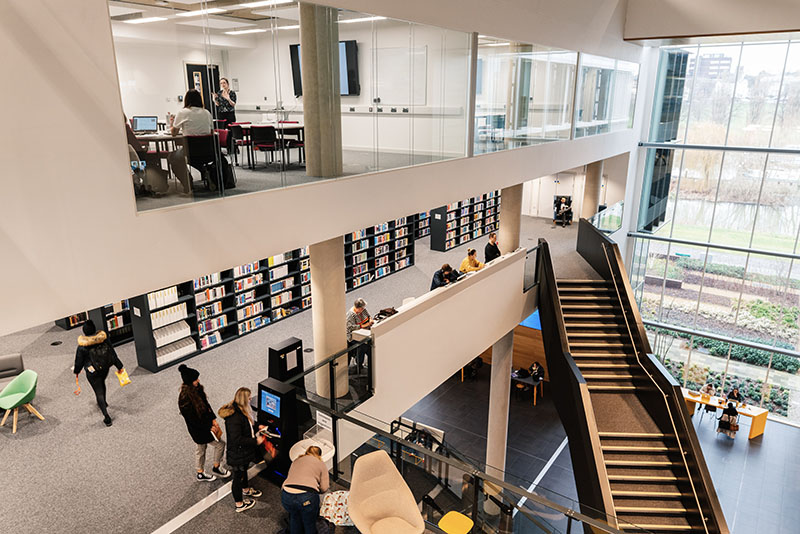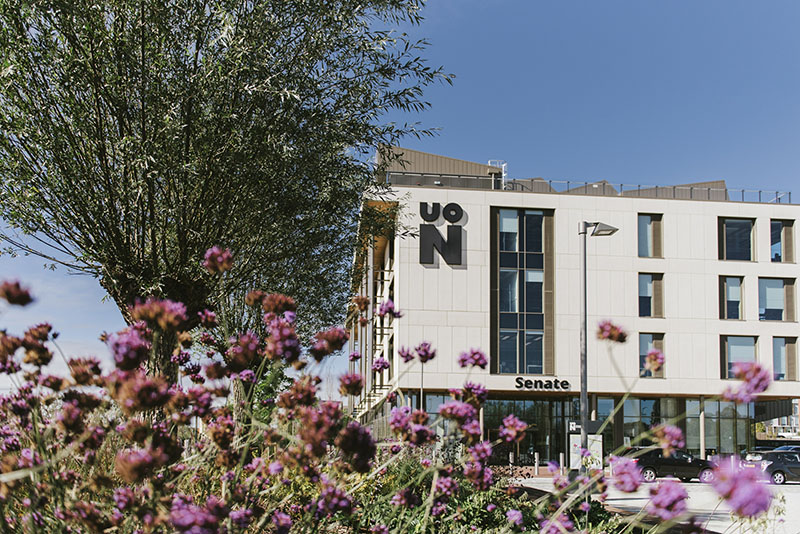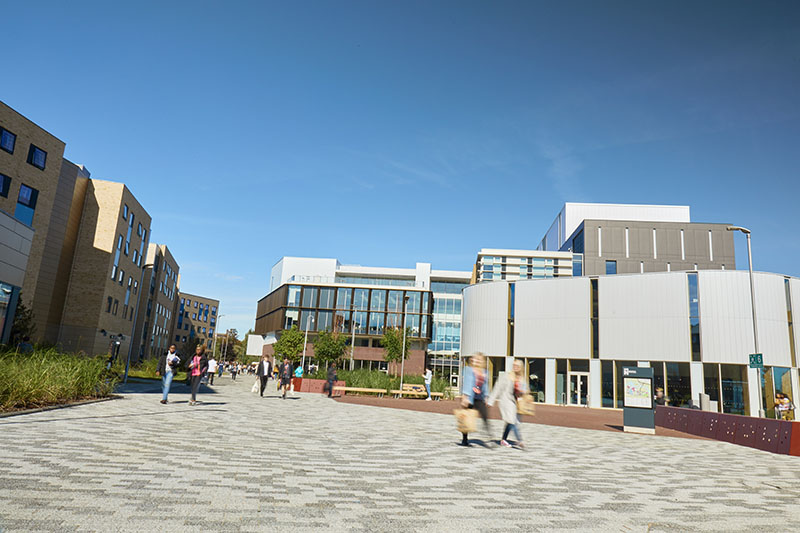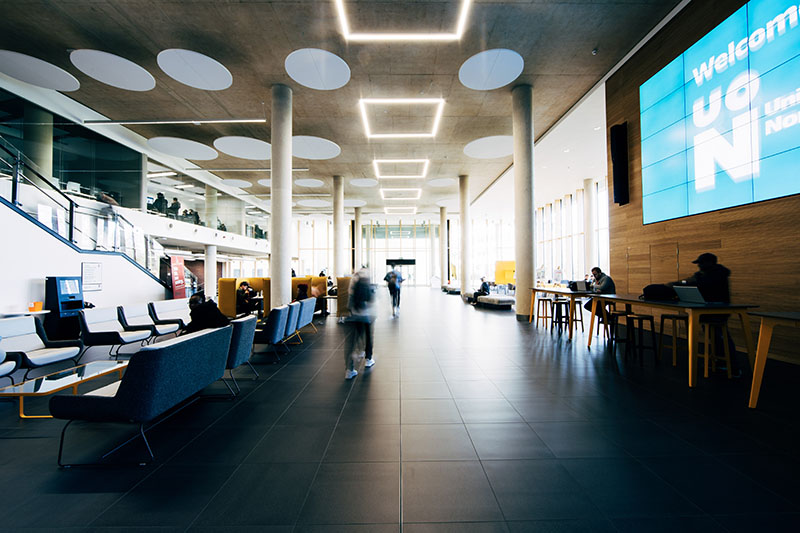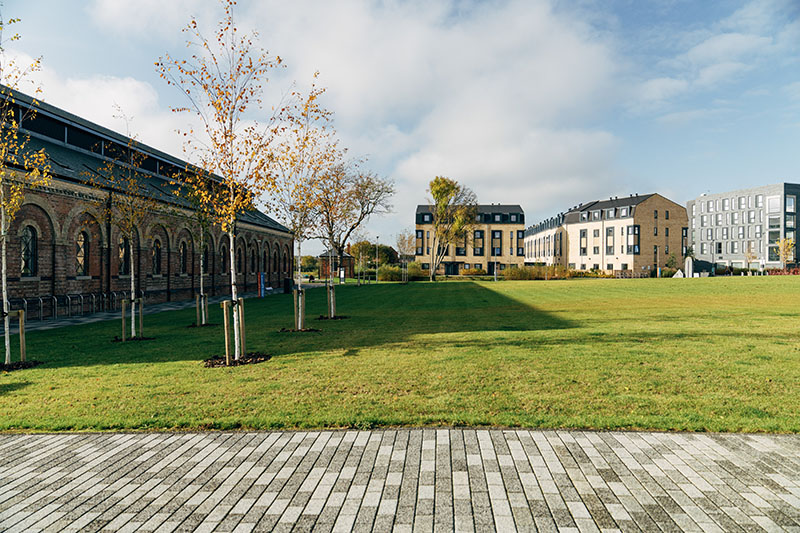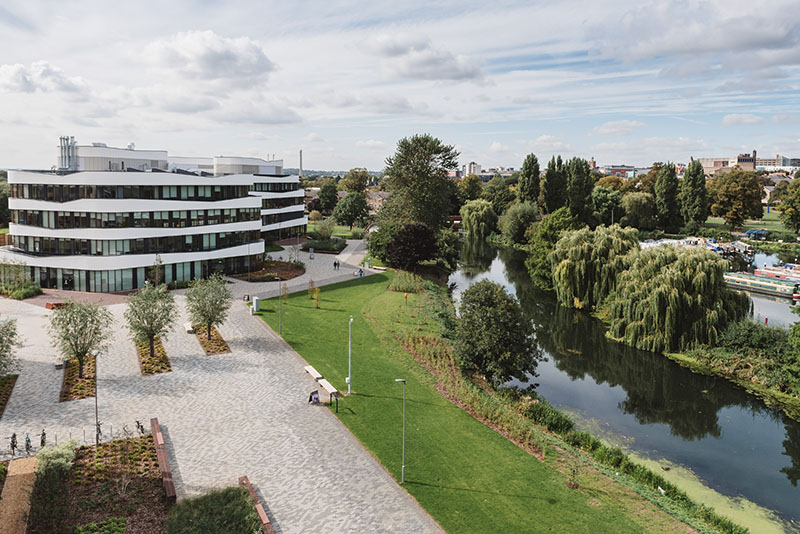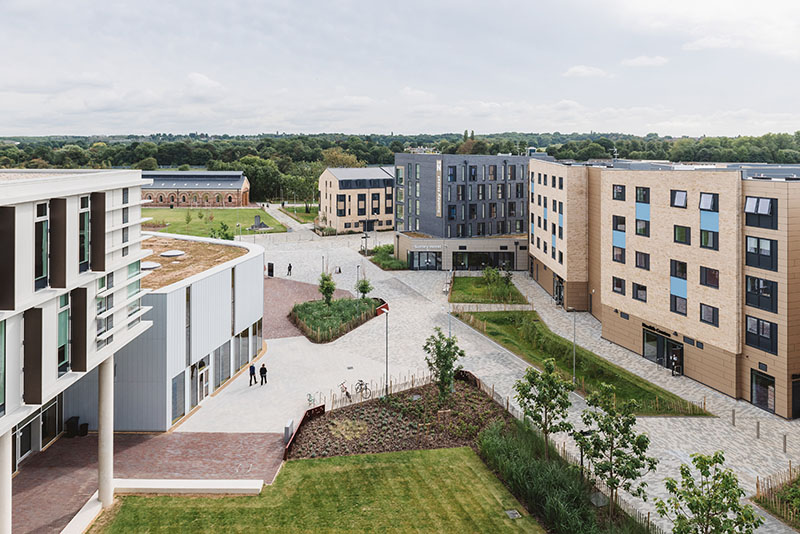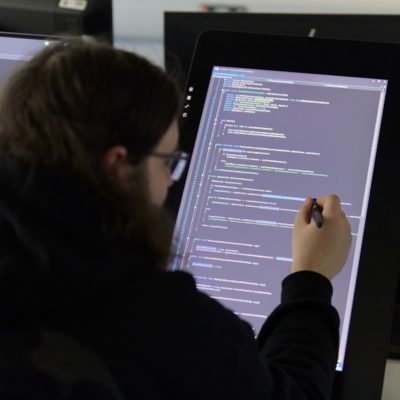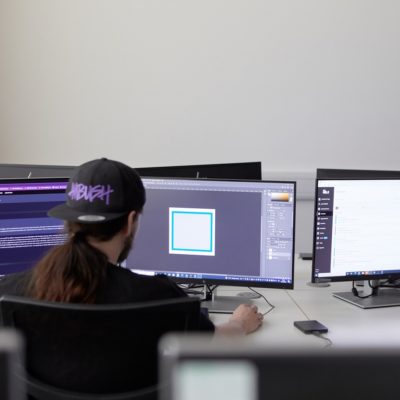Computing (Internet Technology and Security) MSc
- Home
- Courses by subject
- Computing (Internet Technology and Security) MSc
Key Facts
-
Level
Master'sPG
MSc -
Duration
Full Time: 1 year
Part Time: 2 years -
Starting
September, February
-
Fees UK 24/25
Full Time: £8,250
Part Time: £920 (per 20 credits) -
Fees International 24/25
International: £16,995
-
Location
Get in touch
For questions regarding study and admissions please contact us:
Overview
The University of Northampton’s Computing (Internet Technology and Security) MSc course allows you to study cyber security and cryptography. You will have the opportunity to develop your research and analytical skills.
MSc Computing (Internet Technology and Security) students will also complete an individual thesis investigating an area related to an aspect of online secure computer systems design and development that are particularly of interest to you and is part of your career development plans.
Updated 13/06/2024
Highlights
- Access to PC and Linux workstation computers on the MSc Computing (Internet Technology and Security) course
Course Content
-
Today’s society relies on computing and Internet technology. This creates a high demand for internet security products and services as well as people with the knowledge and expertise to design, implement and manage secure internet applications. While the University of Northampton’s Computing (Internet Technology and Security) MSc pathway is mostly technical in focus, you will also learn about the business context and develop interpersonal skills that are vital to problem solving in business.
You will study the following three common modules with all computing master’s students; Modern Computer Architecture, Visual Object Software, and Databases. These modules cover the fundamental principles that you will need to be able to move on to a more specialised range of modules. Some of the optional modules listed below are only offered according to staff
Please note the modules shown here relate to the academic year 24/25. The modules relating to the academic year 25/26 will be available from June 2025.
-
-
Intelligent Systems (20 Credits)
Module code: CSYM015Status: DesignateTo teach students the fundamental theory and practical applications of search methods and agents.The underpinning concepts will be introduced, followed by examples of how intelligent systems are used in applications on the Internet.
-
Databases (20 Credits)
Module code: CSYM017Status: CompulsoryThis module emphasises the importance of sound design using appropriate data modelling techniques (e.g. relational modelling, entity-relationship modelling).
-
Internet Programming (20 Credits)
Module code: CSYM019Status: CompulsoryThis module focuses on creating client and server side software as well as web applications for the World Wide Web us. It concentrates on the technologies used to allow such software to be designed, implemented and deployed.
-
Internet Security (20 Credits)
Module code: CSYM020Status: CompulsoryThe module introduces the key concepts of Computer and Internet Security. The module is designed to provide the student with the necessary theoretical and practical understanding of the technology available to manage and implement secure computer applications in an Internet environment.
-
Dissertation (60 Credits)
Module code: CSYM023Status: CompulsoryThis module provides the student with the opportunity to learn appropriate research techniques in order to carry out independent, relevant and in-depth research in a topic of specific interest.
-
Visual Object Software (20 Credits)
Module code: CSYM025Status: CompulsoryThis module concentrates on creating object-based solutions to software problems within a contemporary integrated development environment. It focuses on the concepts of object technology and the syntax and semantics of the underlying model while promoting good practice in software construction and testing.
-
Software Engineering (20 Credits)
Module code: CSYM026Status: DesignateThis module will provide consolidation and an extension of the skills, understanding and knowledge derived from an earlier module. More advanced topics will be studied in pursuit of robust re-usable and sophisticated design mechanisms. The main aim of the module will be to study in depth some of the major aspects of the various Design issues which impact on the building of the software systems.
-
Modern Computer Architecture (20 Credits)
Module code: CSYM028Status: CompulsoryThis purpose of this module is to consider the structure and behaviour of the various functional modules of the computer and how they interact to provide the processing needs of the user. This module covers systems ranging from PCs through multiprocessors with respect to hardware design and instruction set architecture.
-
Computer Networks (20 Credits)
Module code: CSYM029Status: DesignateComputer Networks module focuses on developing practical networking skills alongside deeper understanding of network principles and protocols (wired and wireless). Although the necessary background is introduced as appropriate, the course on the whole deals with problem-solving using current and emergent network hardware and protocols along with the development of applications to exploit these technologies
-
Mobile Device Software Development (20 Credits)
Module code: CSYM030Status: DesignateThis module focuses on creating software for mobile computing devices. It concentrates on the necessary technologies used to allow such devices to communicate and how to develop software to allow them to do so.
-
Intelligent Systems (20 Credits)
-
-
Applicants for the master’s in Computing (Internet Technology Security) will normally hold a recognised first or second class honours degree from a UK university or international equivalent in a relevant subject. We expect that you will have a working knowledge of computers and networks and it is essential that you have practical hands-on experience of at least one programming language.
For information on how to apply to study with us, please see our How to Apply page.
English Language Requirements
All International and EU students applying for a course with the University of Northampton must meet the following minimum English language requirements:
- Minimum standard – IELTS 6.5 (or equivalent)
for study at master’s level.
For information regarding English language requirements at the University, please see our IELTS page.
- Minimum standard – IELTS 6.5 (or equivalent)
-
2024/25 Tuition Fees
Fees quoted relate to study MSc Computing (Internet Technology and Security) in the Academic Year 24/25 only and may be subject to inflationary increases in future years.
- UK – Full Time: £8,250
- UK – Part Time: £920 (per 20 Credits)
- International: £16,995
Additional Costs
There are currently no additional costs anticipated for this computing course for 2024 entry.
2023/24 Tuition Fees
Fees quoted relate to study MSc Computing (Internet Technology and Security) in the Academic Year 23/24 only and may be subject to inflationary increases in future years.
- UK – Full Time: £8,010
- UK – Part Time: £890 (per 20 Credits)
- International: £16,500
Additional Costs
There are currently no additional costs anticipated for the MSc Computing (Internet Technology and Security) course for 2023 entry.
Master’s Loans
If you are starting a Master’s course in 2024/25 either full-time or part-time* you may be able to apply for a master’s loan through Student Finance England
*Please note that the maximum period of study allowed for part-time courses is two years.
For information on the scholarships available to you, please see our scholarships page.
For more information about possible funding options, please visit our Fees and Funding pages.
-
How will I be taught on Computing (Internet Technology and Security) MSc?
Theoretical lectures and seminars are reinforced by practical examples and case studies, using computer simulation tools and laboratory facilities.
How will I be assessed on this MSc Computing (Internet Technology and Security) course?
Assessment is by coursework, oral presentations, group work, practical reports, critical reviews and a substantial independent research dissertation.
Upcoming Open Days
Open Days give you the best experience and insight to courses, people and facilities that interest you. Make your choice easier and come meet us.
Careers and Employability
When you graduate from the master’s in Computing (Internet Technology and Security) course you will be able to embark upon a range of careers in the broad IT and computing industry. There is a continuing demand for well-trained staff in this industry.
Some examples of job roles include:
- Information Technology Manager
- Chief Technology Officer
- Chief Information Officer
- Lead Information Architect
- Chief Information Security Officer/Analyst
- Information Security Risk Officer
- Project Manager
- Lead Web Programmer/Developer/Designer
- Lead Software Developer
- Information Security Consultant
- Cyber Security Manager
- Source Code Auditor
- IT Security Operations Specialist
Student Story
'My study at UON really helped me to start a good career in the field of computer science.'
Facilities and special features
MSc Computing (Internet Technology and Security) students will have access to approximately 150 PC and Linux workstation computers housed in six bespoke computer laboratories, all with digital projection facilities, and maintained by two technicians.
We enrol small cohorts of students to ensure that you receive personalised care that will enable you to develop your skills and enhance your knowledge.
